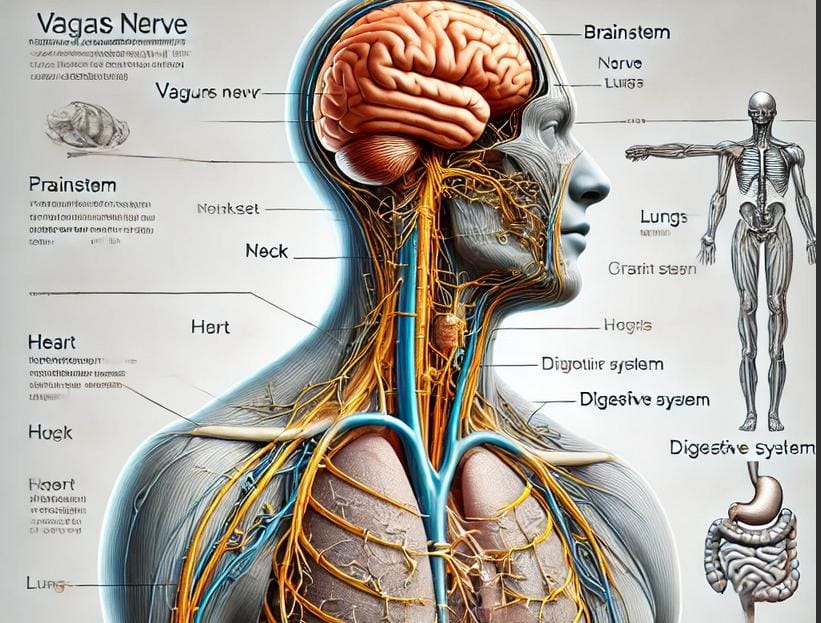Can Singing Improve Memory? Get to Know the Vagus Nerve!

What is the Vagus Nerve and What Role Does It Play in the Body?
The Vagus Nerve is one of the most important cranial nerves in the human body. It is the 10th cranial nerve (Cranial Nerve X) and plays a crucial role in connecting the brain to various internal organs, including the heart, lungs, digestive system, and autonomic nervous system.
Where is the Vagus Nerve Located?
The Vagus Nerve originates from the brainstem and extends through the neck, passing down to the chest and abdomen. It branches out to transmit nerve signals to different organs, such as the heart, lungs, and intestines, making it highly influential in the body's vital systems.
Functions and Benefits of the Vagus Nerve
- Regulation of the Autonomic Nervous System – Balances the sympathetic (fight-or-flight) and parasympathetic (rest-and-digest) nervous systems, aiding stress response and relaxation.
- Influence on Heart Rate and Blood Pressure – Helps lower heart rate and blood pressure when the body is in a relaxed state.
- Digestive Control – Regulates the secretion of digestive enzymes and movement of food through the digestive tract.
- Impact on Mood and Mental Health – Linked to neurotransmitters such as serotonin and dopamine, which affect depression and stress levels.
- Immune System Support – Helps reduce inflammation and enhance immune response.
Does Stimulating the Vagus Nerve Really Improve Memory?
Numerous studies have investigated the effects of Vagus Nerve stimulation (Vagus Nerve Stimulation: VNS) on the brain and memory function. Research indicates that stimulating the Vagus Nerve can enhance learning and memory processes, potentially by increasing blood flow to the brain and optimizing neurotransmitter levels.
Supporting studies include:
- Research published in Nature Neuroscience suggests that Vagus Nerve stimulation may enhance long-term memory formation through mechanisms involving the hippocampus.
- Clinical studies indicate that patients who undergo Vagus Nerve stimulation show improvements in cognition and memory retention.
- Some evidence suggests that stimulating the Vagus Nerve may slow cognitive decline in older adults.
Natural Ways to Stimulate the Vagus Nerve
While medical Vagus Nerve stimulation requires specialized devices, there are natural ways to enhance its function:
- Deep Breathing Exercises – Slow, deep breathing promotes parasympathetic activity and strengthens Vagus Nerve function.
- Singing or Humming – Using vocalization, such as singing or chanting, can stimulate the Vagus Nerve through vibrations in the throat.
- Cold Exposure – Splashing cold water on the face or immersing in cold water can activate the Vagus Nerve and improve stress resilience.
- Regular Exercise – Engaging in physical activity helps regulate the autonomic nervous system.
- Meditation and Yoga – Reduces stress and enhances Vagus Nerve activity.
- Self-Massage – Massaging areas around the neck, jaw, and behind the ears, where the Vagus Nerve passes, may help stimulate its function.
Conclusion
The Vagus Nerve plays a vital role in regulating the autonomic nervous system, digestion, immune response, and mental health. Some research suggests that stimulating the Vagus Nerve can improve memory and cognitive function. However, more studies are needed to confirm its long-term effects. If you are interested in Vagus Nerve stimulation for health benefits, consult a healthcare professional before pursuing medical interventions.



